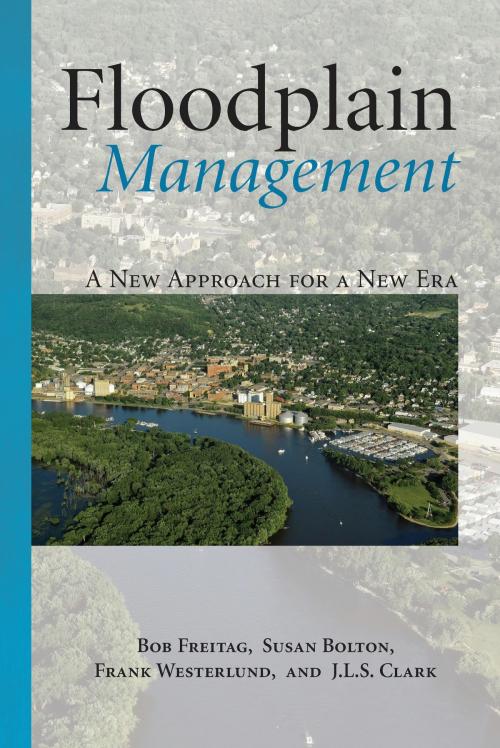Floodplain Management
A New Approach for a New Era
Nonfiction, Art & Architecture, Architecture, Planning| Author: | Bob Freitag, Susan Bolton, Frank Westerlund, Julie Clark | ISBN: | 9781610911320 |
| Publisher: | Island Press | Publication: | June 22, 2012 |
| Imprint: | Island Press | Language: | English |
| Author: | Bob Freitag, Susan Bolton, Frank Westerlund, Julie Clark |
| ISBN: | 9781610911320 |
| Publisher: | Island Press |
| Publication: | June 22, 2012 |
| Imprint: | Island Press |
| Language: | English |
A flooding river is very hard to stop. Many residents of the United States have discovered this the hard way. Right now, over five million Americans hold flood insurance policies from the National Flood Insurance Program, which estimates that flooding causes at least six billion dollars in damages every year. Like rivers after a rainstorm, the financial costs are rising along with the toll on residents. And the worst is probably yet to come. Mscientists believe that global climate change will result in increases in flooding.
The authors of this book presa straightforward argument: the time to stop a flooding rivers is before is before it floods. Floodplain Managemoutlines a new paradigm for flood management, one that emphasizes cost-effective, long-term success by integrating physical, chemical, and biological systems with our societal capabilities. It describes our presflood managempractices, which are often based on dam or levee projects that do not incorporate the latest understandings about river processes. And it suggests that a better solution is to work with the natural tendencies of the river: retreat from the floodplain by preventing future developm(and sometimes even removing existing structures); accommodate the effects of floodwaters with building practices; and protect assets with nonstructural measures if possible, and with large structural projects only if absolutely necessary.
A flooding river is very hard to stop. Many residents of the United States have discovered this the hard way. Right now, over five million Americans hold flood insurance policies from the National Flood Insurance Program, which estimates that flooding causes at least six billion dollars in damages every year. Like rivers after a rainstorm, the financial costs are rising along with the toll on residents. And the worst is probably yet to come. Mscientists believe that global climate change will result in increases in flooding.
The authors of this book presa straightforward argument: the time to stop a flooding rivers is before is before it floods. Floodplain Managemoutlines a new paradigm for flood management, one that emphasizes cost-effective, long-term success by integrating physical, chemical, and biological systems with our societal capabilities. It describes our presflood managempractices, which are often based on dam or levee projects that do not incorporate the latest understandings about river processes. And it suggests that a better solution is to work with the natural tendencies of the river: retreat from the floodplain by preventing future developm(and sometimes even removing existing structures); accommodate the effects of floodwaters with building practices; and protect assets with nonstructural measures if possible, and with large structural projects only if absolutely necessary.















